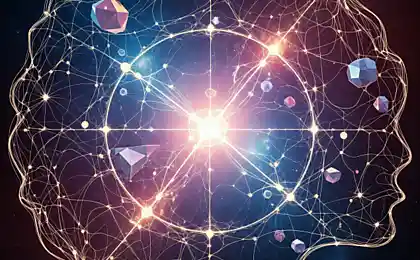409
The Psychology of Happiness: How to Be Happy Every Day

Happiness is a word that sounds simple, but is filled with many meanings and nuances. In culture and in everyday life, happiness can mean enjoying life, smiling loved ones, peace of mind or even bright euphoria. However, from a psychological point of view, happiness is not so much a fleeting emotion as a state in which we feel a balance between our needs, goals and reality. And, according to research by the American Psychological Association, the constant feeling of happiness is not reduced to “good genes” or “accidental circumstances”, but is strongly influenced by habits, thought strategies and attitudes to the world.
In this article, we will examine what happiness is from a psychological point of view, what key components affect our sense of joy in everyday life and, most importantly, share practical tips (life hacks) that will help make every day a little happier. The material is aimed at a wide adult audience and suggests a popular science style close to the expert level, but at the same time accessible and fascinating. We are not tied to specific dates, so this information will remain relevant and useful any time you decide to start living a happier life.
What is happiness from a psychological point of view
According to modern psychology, happiness is a combination of a positive emotional state and a sense of life satisfaction. Two aspects are distinguished:
- The hedonistic aspect: When a person experiences joyful emotions (fun, pleasure), avoiding suffering. This is a short-term, “emotional” happiness, which is based on pleasure from food, rest, vivid impressions.
- Eudemonic aspect: A deep sense of the meaning and value of life, “living on your own terms,” a sense of fulfillment. It is formed when a person achieves agreement with their values, goals and behavior.

Why We Don't Always Feel Happy
If happiness means so much to the psyche, why do we so often give up looking for it or feel a lack of joy? There are several answers to this question:
- Adaptation: According to the law of hedonic adaptation, we quickly get used to new things (money, status, gadgets, even relationships). The joy of the novelty fades, and we return to the original level of happiness.
- Stress and the rhythm of life: Modern rhythm imposes many tasks, we are overloaded with information, compete for success, forgetting about the importance of simple joys, rest and time for ourselves.
- The myth that “happiness will come by itself”: People sometimes believe that happiness depends on external factors (partner, work, lottery) and do not make conscious efforts, and happiness requires habits and conscious control of the emotional sphere.
10 Tips for Becoming Happy Every Day
So, let’s move on to the practical part: below you will find life hacks based on scientific research and the experience of psychologists, which will help to gradually “pump” your happiness. It is important to understand that all these tips work best in the complex and take time - instant miracles should not be expected. But even small improvements can significantly increase the feeling of joy in everyday life.
1. Practice gratitude.
Consciously developing gratitude is one of the strongest tools to increase happiness. According to research, keeping a gratitude diary improves psycho-emotional state and strengthens social ties.
- How to do this: Write down 3-5 things every day that you are grateful to others or yourself.
- Why it works: Focus on the positive shifts the point of perception, allowing you to notice the good in life.
2. Evaluate “progress”, not “perfect”
Many people lack a sense of happiness because they compare themselves to some “perfect image” (stars, successful bloggers). It is better to compare yourself to yourself in the past by noticing growth.
- Step: Keep a simple “journal of achievements” or at least a weekly review: what you learned, what you improved.
- Effect: You are less envious of others and appreciate your own dynamics, which strengthens your self-esteem.
3. Set aside time to communicate “live”
One of the basic findings of positive psychology is that social connections are the key to happiness. Correspondence in social networks does not replace real friendly conversation and eye contact.
- Recommendation: Organize regular “offline” meetings with friends and family. Even a short dinner together can do wonders.
- Bonus: Live communication saturates emotions, reduces stress and gives a sense of belonging to a group, which is extremely important for the psyche.

4. Develop “mindfulness” (mindfulness)
Mindfulness techniques help to free oneself from useless worries about the future and regrets about the past. This is easy: it is enough to regularly (at least 5-10 minutes a day) practice focusing on breathing, body sensations or surrounding sounds, without judgment or analysis.
- Example of exercise: Sit comfortably, close your eyes, focus on breathing, and track your inhalations and exhalations. When the thought goes away, gently return to the breath.
- Result: Increasing awareness in everyday life, reducing stress, improving emotional control.
5. Learn to manage stress and relax
Happiness drops dramatically if life is filled with task-to-task running without interruption. Chronic stress suppresses immunity, provokes burnout and reduces the ability to rejoice.
- Council: Introduce “micropause” throughout the day, allowing the brain to reboot. This can be a brisk walk, breathing exercises, or 5-minute meditation.
- The power of rest: In addition to sleeping at night, short periods of relaxation are also important when you are not thinking about work and problems.
6. Set realistic but inspiring goals
Happiness has a lot to do with a sense of meaning and progress. If the goal is too easy, there will be no satisfaction, if it is too difficult and unattainable, disappointment will come. Find balance: The goal should be ambitious enough to motivate, but not crazy.
- Example: If you’ve never run before, set a goal to run 5km instead of a marathon.
- Result: Each stage you achieve adds confidence, bringing you closer to a larger task.
7. Creativity and the “flow” state
According to the flow theory of Mihai Csikszentmihalyi, the state of “flow” (when we are completely absorbed in an interesting business and lose track of time) is closely correlated with a high level of happiness. Creativity is a great way to experience such states. It can be music, drawing, cooking, handmade.
- How to start: Choose an activity that makes you happy, and take time without distractions (gadgets, notifications).
- Effect: The areas of the brain responsible for pleasure and concentration are activated, which increases the overall mood tone.
8. Help others, but don’t forget your boundaries.
Altruism comes back to us in a surprising way through the feeling that “we contribute to good.” Research shows that volunteering and helping practices contribute to happiness. But it is important to balance – not to become a person who sacrifices his health and time, leaving no resource for himself.
- Example: Allocate 1-2 hours a week to help (online consultations, volunteering at the shelter), but do not sacrifice all your free time.
- Psychological plus: Caring for others increases self-esteem and strengthens a sense of connection with the world.
9. Conscious Digital Detox and Information Hygiene
Unrestrained consumption of content in social networks and news often causes anxiety and comparison with “glossy images”. If you want to increase your happiness, it’s important to filter the information you absorb.
- A practical measure: Have a “digital detox” – a day or part of a day without social media. Think about how much better you feel after that.
- Control: Choose 1-2 verified news resources, do not scroll dozens of sites.
10. Recognize the right to make mistakes and be flexible.
One of the biggest obstacles to happiness is the pursuit of perfection and the fear of being judged by mistakes. Psychological maturity implies: “I have the right to make mistakes, to learn, to change my mind.”
- Approach: Instead of “I do everything perfectly or not,” use “It’s better to do it imperfectly, but to do it.”
- Culture of development: If you look at success stories (in business, in science), most of the achievements were built through a series of trials and adjustments.

Conclusion
The psychology of happiness is not an empty phrase, but an area where scientific research and practical experience converge at a single point: happiness can really be “trained” and increased. We can’t control circumstances, genes or time, but we can control our habits and thoughts. The habit of seeing the good (practicing gratitude), the ability to relax and balance tasks, the willingness to enjoy creativity, maintaining close ties and helping others all create the foundation for a more sustainable state of joy.
It is important to remember that happiness is not a continuous euphoria, but a combination of emotional well-being and a sense of meaning. From time to time, we experience sadness, stress, or failure, and that’s normal. But if the baseline “temperature of happiness” is high enough, we are quicker to cope with difficulties and remain optimistic. We hope that these ten tips will help you build your “architecture of happiness” – step by step, day by day, meaningfully and consciously. After all, happiness is not the result of a magic formula, but a conscious choice to be the master of your life.
How to Develop Critical Thinking Without Becoming a Victim of Myths
How to read pictures: hidden symbols in famous masterpieces























